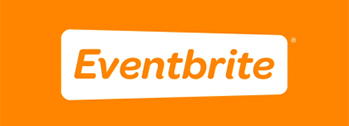| 08:30-09:00 | Registration |
| 09:00-11:00 |
Morning Session Introduction to the Conference by Dr Jess Gardner, Cambridge University Librarian |
| Keynote Address: Let the People Speak: Documenting Beyond the Library Norm Meredith Evans (VP/President Elect, Society of American Archivist and Director of Jimmy Carter Presidential Library) |
|
| 11:00-11:45 | Tea/Coffee (and poster viewing) |
| 11:45-12:45 | Parallel Sessions 1 (choose from A, B, C and D): |
|
A: ‘I felt really overwhelmed …I’m worried’: How (and why) libraries are a key resource in supporting student wellbeing in Higher Education Antony is Head of Academic Services at the University of Warwick where he leads the subject librarians and archives team, a small R+D team and the library's marketing function. He also provides strategic lead for the library’s community engagement endeavours, working closely with the university’s undergraduate, postgraduate and teaching communities to help create the conditions for them to be successful in their studies and work. His team – along with colleagues in Wellbeing Support Services and Warwick Sport – won the 2017 Staff Award for supporting the student experience. Today he will be exploring why wellbeing is a library issue and how libraries can support the HE wellbeing agenda. Potential attendees for this session should be warned that it will contain images of cute dogs and happy students. |
|
|
B: Game On! Enhancing engagement, interaction and reflection in library workshops Dr J. Adam Edwards (Library Liaison Manager, Middlesex University) and Dr Vanessa Hill (Service Development Liaison Librarian, Middlesex University) During the session we will explore the value of using games as a tool to encourage engagement, interaction and reflection in library workshops. At Middlesex University we are increasingly using games and other play related activities to transform our practice. We will consider how gamification works in our context and how it enhances information literacy. Delegates will have an opportunity to try out one of our games and will have access to all the teaching resources that we have developed. |
|
|
C: Library Carpentry: software and data skills for librarian professionals |
|
|
D: Libraries and Open Research discussion panel Confused about Open Access? Not sure how libraries can help researchers around the University? Want to get new ideas about how to support our various user groups? Come and ask our expert panel your research-related questions in this audience-driven Q&A panel session! |
|
| 12:45-13:45 | Lunch (and poster viewing) |
| 13:45-14:00 | Afternoon welcome |
| 14:00-14:30 | Lightning Talks: Part One |
| 14:30-15:30 | Parallel Sessions 2 (choose from A, B, C and D): |
|
A: PREVENTing Freedom of Inquiry? Surveillance, privacy and the ethics of librarianship This session will explore the implications of the PREVENT strategy and other forms of surveillance on freedom of inquiry and expression for library users, drawing on research around conceptions of surveillance, self-censorship, privacy and personal agency to discuss the often conflicting roles of libraries. Potential approaches for policy, practice and future research will be explored. |
|
|
B: Considering Open Educational Practices Open education draws on a long history of social, political, and education movements that aimed to widen access to education, enhance learning, empower learners, and advance equality. The intersection of open education and libraries is perhaps most evident in the development and management of Open Access policies. This session, however, will explore other facets of the intersection between openness and libraries, i.e. using, re-using, and creating open educational resources (OER), and even more broadly, using open educational practices (OEP). OEP include the use of OER as well as open pedagogies, open and peer learning, and the use of open tools. Open educational practices can support teaching (as well as modelling) information literacies, critical data literacies, and digital citizenship. In addition, however, OEP encourage us to bridge formal and informal learning practices and networks -- as learners, as educators, and in academic support roles. This session explores the benefits and tensions involved in using open educational practices within the academy, drawing on a wealth of current research and practice. |
|
|
C: Digital data and professional practices: New accountabilities, stewardship, and literacies Responsibilities of professional workers are changing as work is increasingly delegated to digital devices. This session will report on the findings of a research project that examined how the use of learning analytics informed and reconfigured both research and teaching practices. We will consider the new fluencies required by professionals as they engage in new forms of “data speak” and “data work” and the subsequent deskilling and upskilling. Because data is currently at the centre of a storm around ownership, sovereignty, machine learning, and stewardship, it is timely to attune to these issues vis a vis the data professionals work with (such as student data) as well as the data that they personally generate through everyday activities. |
|
|
D: Building bridges between libraries and research Digital technologies are fundamentally changing access to learning and are intrinsically liberal in nature. The Cambridge Digital Library manifests the digital revolution, and in doing so builds bridges between libraries and the research being undertaken on collections. Recent projects demonstrate the revolution is steaming ahead and bringing researchers and librarians together with spectacular results. There is no sign of a slowdown either and, as we move forward, further opportunities will strengthen this affinity. |
|
| 15:30-16:00 | Tea/Coffee (and poster viewing) |
| 16:00-16:30 | Lightning Talks: Part Two and conference close |
| 16:30- | Conference networking will continue in an alehouse of the committee's choice |
Please note that the above timings may be subject to change on the day of the conference itself.







